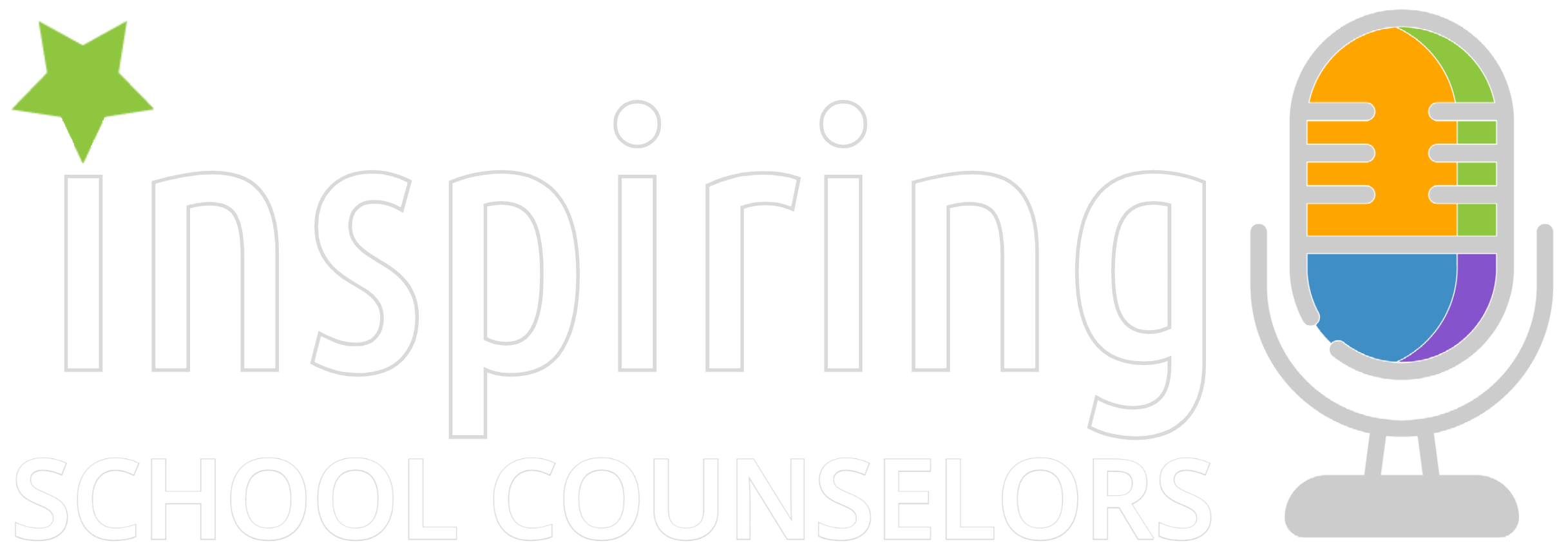

This Week's Storyteller
Bruce Bushnell was a school counselor at Pleasant Grove High School in Utah for many years and now serves as Vice President of Training for Why Try. His 40+ year career includes serving as senior vice president of the Alpine Counseling Association and vice president of the Utah Counselor Association.
Resources from this Episode
Subscribe
Encouraging Words for School Counselors is also available on these podcast apps and others. If you can’t find the podcast on your favorite app, let us know and we’ll make sure we get there.
If you prefer to listen in your browser, visit https://inspiresuccess.org/podcast every week for a new episode. Follow Inspire Success on Facebook, Instagram, or Twitter for reminders.
Transcript
Matt Fleck:
Hey! Welcome back to Encouraging Words for School Counselors – the five minute podcast with true stories FROM school counselors ABOUT school counseling. I’m Matt Fleck with Inspire Success.
This podcast is all about encouragement – so we’re NOT going to talk about politics, we’re NOT going to talk about COVID. Instead, we’re going to focus on encouragement as we busily prepare for the holiday season.
And boy do we have the perfect story to start off the season. It’s from Bruce Bushnell – who, before he became a trainer for the organization Why Try – spent 18 years as a high school counselor at Pleasant Grove High School in Utah. Bruce’s story starts a few years ago and just a few days before holiday break.
Bruce Bushnell:
A young lady came into the counseling office and she, uh, handed me a wrapped present and gold wrapping with a gold ribbon. And she got all emotional. She had tears in her eyes and she handed me this present. And I thanked her. I said, but I didn’t recognize her. I don’t remember ever seeing her as a counselor. We do counseling presentations and teach things in the classes and run groups and individual counseling. I don’t know her name. I don’t recognize her. I said, I’m really touched by this. I didn’t know her name, but aren’t you getting me confused with another teacher, someone else? She said, no, she said, no, it’s for you, Mr. B. And I go, well, thank you. And then she left. I took it home and put it under our tree. And then in the morning we opened presents, came down and as a family we gathered and opened all these presents and I totally forgot I put her present under the tree. My daughter said, dad, there’s one present left for you. It was the very last present. We brought it out. It was way back underneath. And I brought up the gold wrapping and opened it up and it was a jewelry box. And then there was a card and the card was called Footprints in the Sand. And at the bottom of it, it said, “Thanks for saving my life, Angela.”
Matt:
Here was an extremely thoughtful present from a student to her counselor – except – Bruce had NO idea who the student was.
Bruce:
I was so perplexed. I don’t know this young lady. I don’t know her name. I’ve never done anything. I, I just, I was taken aback. I tried to go over this — my faculty and our principal’s probably grateful — I try to go and break into our office where we have a picture book that goes through every student. Cause she said, “thanks for saving her life, Angela.” So I went over there and you know, tried to break in, but I couldn’t get in and no one was there. And so I just waited, but it was right when I got back after the holiday break, I went straight to the book. I went through the whole book and found an Angela I felt quite sure was her.
Matt:
So Bruce found the student’s schedule – she was a sophomore – and he sent a pass to see her.
Bruce:
She came in, I said, Angela, I was really touched by your gift, but I’m also confused. Can you help me understand? I’m quite sure this is for someone else. I was touched. In the jewelry box was a little pin. I wear it on my suit as a reminder about to really look out for students and care about students. But I said, I appreciated the gift and the card and help me understand because you know… This is what she said. She said, my family’s moved a lot. And we moved here to your high school. This is about our eighth or ninth move. And I have to start over again. And I’m having a hard time making friends. And my family has had a lot of challenges. And I won’t go into those today, but they did. They had a lot of challenges. And then she personally had a lot of challenges.
And then she said, you know, I came to the point this time that I felt like life wasn’t worth it. And she got all emotional again. And I got all emotional. I get emotional real easy. So I’m trying not to get emotional now because I haven’t told the story for a day or two. And, and uh, she said, I just wanted a sign that someone cared. Uh, sorry. She said, I just wanted a sign that someone cared. She said, two straight days, you came down the hall, gave me a high five, and said have a great day. But she said that what she felt like had touched her the most, she said on the third time, it was, I think it was a couple of days after that. But on this third time, when I came down the hall and recognized her, I came down and said, you know, I’m so glad you’re here. We need you, have a great day, and gave her a high five. And that’s the exact words she said back to me. She said, I knew without a shadow of a doubt that someone cared, that you cared. And that was the sign I was looking for.
Matt:
In the WhyTry Program, where Bruce is a trainer, they have a concept called “Surrendering the one-up relationship.” A one-up relationship is when someone – like a teacher or counselor – like us — is perceived by students to have a bit of an advantage, more knowledge or power than another person. Like a student. As adults, when we surrender the “one-up” relationship we acknowledge that students have control of their own lives – that we’re here to help but not pretending to be all knowledgeable, or to have all of the answers. WhyTry believes that surrendering the “one-up” relationship is one of the most effective things adults can do to motivate students and build trusting relationships. And when Bruce was working the hallways at his school HIS message was…
Bruce:
We believe in you. We care about you. We’re glad you’re here. We want you to be here and we’re going to support you. And we treat you with dignity and respect regardless. It’s not tied to behavior or achievement or failure. Whether you’re a member of the student council or the band or the dance group, or you’re the leader of a gang, that doesn’t change. Whether you get all A’s or all F’s, I care about you.
Matt:
It’s another example of how small gestures can have a large and lasting impact. Thanks, Bruce. You can find a simple handout on Surrendering the One-Up Relationship from the WhyTry Program on our website at inspiresuccess.org/podcast.
And while you’re there – click on “Add Your Story” which will take you to our new online Soundbooth – where you can record YOUR story of a student around the holidays with just the click of a button and inspire others.
Oh, and remember you can find our five-minute podcast on all of the podcasting apps or ask your smart speaker to play Encouraging Words for School Counselors. Have a great week. Thanks for listening.
